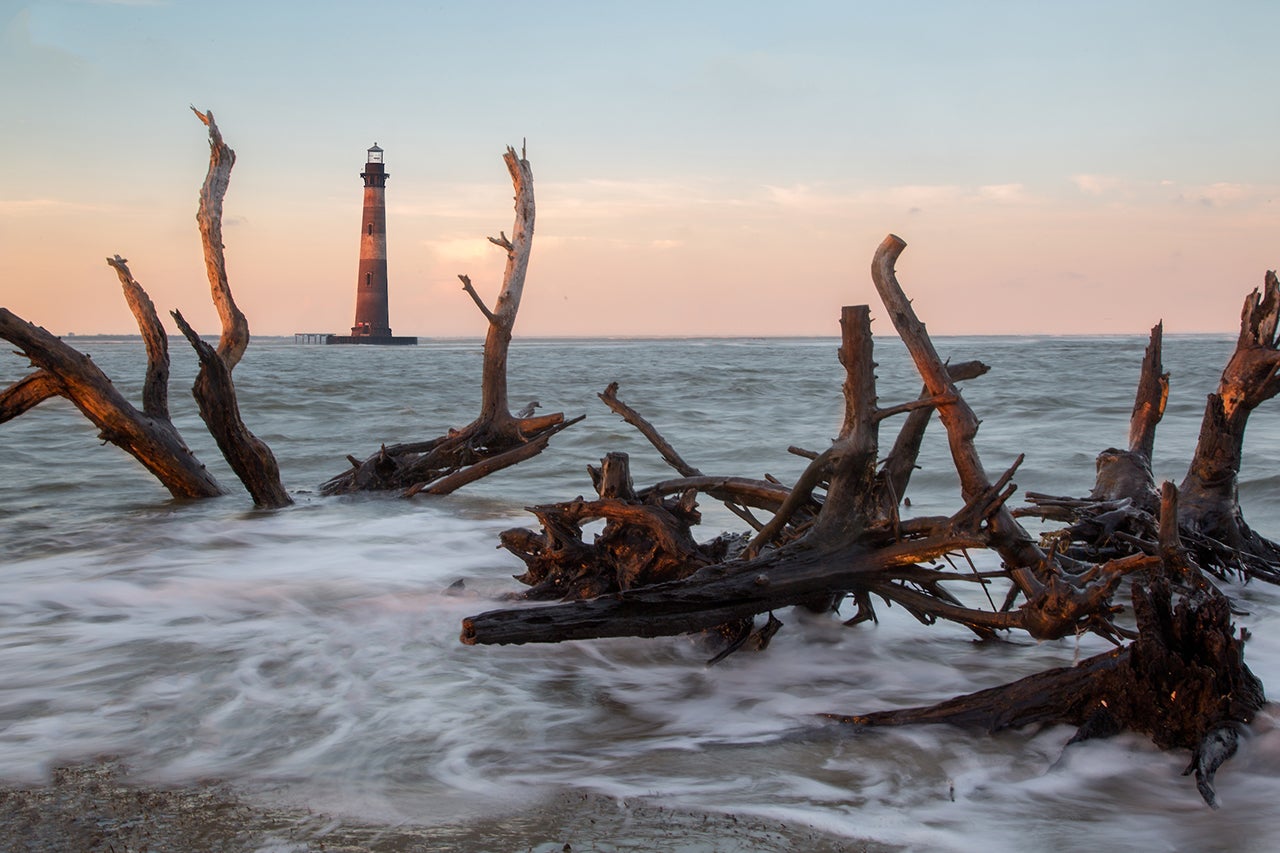Summer is a time of exploration for students. It’s a chance to go somewhere new, to see something different and embrace the feeling of days free of classes, homework and tests. But for some inquisitive students at the College of Charleston, summer is a time to dig into their studies and focus on that one thing they want to learn.
That’s where the Office of Undergraduate Research and Creative Activities (URCA) comes in, offering summer research opportunities through the Summer Undergraduate Research with Faculty (SURF) program, which offers grants of up to $6,500.
For summer 2018, a total of 29 student projects have been awarded funds. Students will work with faculty mentors to investigate a wide variety of topics, from pharmaceuticals in water systems to researching unpublished letters written by iconic Southern writer Eudora Welty.
“Through the College’s support, URCA is committed to providing these life-changing opportunities for undergraduate students regardless of discipline,” says Elizabeth Meyer-Bernstein, associate professor of biology and director of the College’s undergraduate research and creative activities program. “This year, URCA funded projects from 11 different departments in four schools across campus. In addition to URCA, several schools on campus offer similar types of summer support. Regardless of the funding source, these immersive experiences challenge the students to think beyond the classroom, and develop disciplinary and professional skills with the guidance of a faculty mentor.”
Here is a look at five of this summer’s SURF research projects. Visit the URCA website to learn more about all 29 SURF projects.
Darkness in Wonderland: Child Psychology and the Golden Age of Children’s Literature
Emily Anderson, a double major in English and psychology, will work with English Professor Tim Carens to examine the influence of Victorian values and the emergence of developmental psychology in British children’s literature from 1850 to 1920. Such classics as Alice’s Adventures in Wonderland and Peter Pan will take on a different narrative under this new academic lens. Anderson, who is minoring in British Studies, will spend time in June conducting research at the British Library in London. She explains her research this way: “While literary criticism on this subject has, for the most part, focused on a handful of well-known stories, I aim to determine the extent to which the British public embraced the ‘darkness in wonderland’ in myriad forms.”
Amphibian Community Composition Along Coastal Salinity Gradients
Mikayla Drost, a double major in marine biology and geology, will investigate the increasing trend of salinization of freshwater and how that impacts the lifecycle and populations of amphibians, many of which reproduce in freshwater environments. With the help of Allison Welch, associate professor of biology and director of the College’s Environmental and Sustainability Studies minor, Drost will evaluate four locations representative of coastal Charleston County. “By examining the relationship between salinity and amphibian communities, we hope to assess the vulnerability of these populations and communities,” Drost explains.

Male treefrog Photo by Brian Gratwicke
An Automated System for Polyp Detection in Wireless Capsule Endoscopy
According to the American Cancer Society, excluding skin cancers, colorectal cancer is the third most common cancer diagnosis for both men and women in the United States. Early detection is key in combating this disease, and technology for screening colon cancer is beginning to shift to wireless capsule endoscopy (WCE) images. But clearly identifying polyps in the myriad of images can be difficult. That’s why math major Michael Lanier with Mukesh Kumar, assistant professor of mathematics, will work to create mathematical models within the WCE technology to help physicians to identify polyp images automatically. Lanier and Kumar explain their research this way: “In this project, we will develop an automated system for polyp detection in WCE images based on deep learning which is an improvement to the neural networks that contain more computational layers that allow for higher levels of abstraction and prediction in the data.”
Role of the Chelate Effect in the Affinity of Natural Organic Material for Silver Nanoparticle Surfaces
Nanoparticles are in just about everything these days from eyeglass lenses to sunscreens to stain-repellant fabrics. With the rise of nanoparticles, particularly silver nanoparticles, scientists have become concerned about the impact silver nanoparticles may have on aquatic environments. Biochemistry major Bach Nguyen will work with Assistant Professor of Chemistry Katherine Mullaugh to research the behaviors of nanoparticles in natural waters. The goal, says Nguyen, is as follows: “Results from this work would be of interest to our field because it would provide insight into what water quality parameters are important to consider when predictions about the behavior of this emerging class of contaminants is considered.”
Conceptions of Altruism Across Western and Non-Western Countries
Psychology major and philosophy minor Harper Richards wants to know why people help one another when they do. Is it for egoist reasons or is it purely to help alleviate the suffering of others – altruism? Under the guidance of Jennifer Wright, associate professor of psychology, Richards will seek to better understand how people define altruism, whether they value it and if it’s something that is promoted in various communities across southeast Asia. As part of her research, Richards is studying abroad with Wright this summer to conduct interviews in Cambodia and Vietnam. “Ultimately, the study aims to determine how western versus non-western countries incorporate the notion of altruism into their cultural world-views, and the degree to which this actually impacts people’s daily lives,” says Richards.





